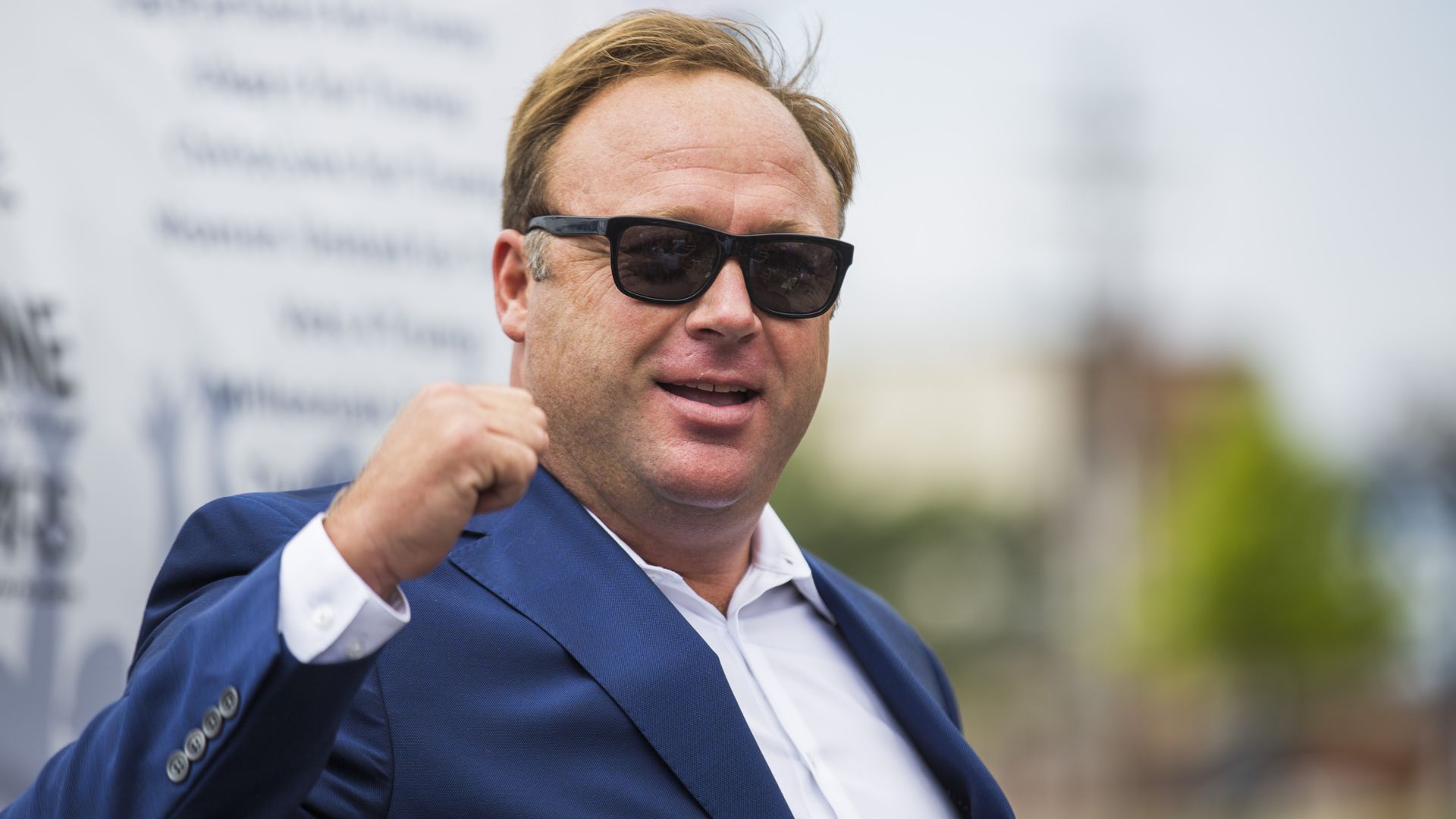Alex Jones, the host of Inforwars, infamous conspiracy theorist and a man praised by Trump to have “an amazing reputation,” has been banned from YouTube, Facebook, Spotify, Apple and Vimeo for violating their company policies concerning hate speech.
Between claiming that 9/11 was an inside job and that the Sandy Hook shooting was staged, Jones also avidly promotes his own brand of expensive dietary supplements on the media empire of millions of followers he has built. After Infowars was banned from major platforms, not only did Alex Jones and his most avid followers cry out at the violation of their free speech, but many others stood up for him as well.
If you think that Jones’s First Amendment right has been violated and that therefore everyone else’s is in danger, you can be assured that this is not the case. The First Amendment prohibits Congress from imposing laws that restrict the freedom of speech, assembly, petition, religion and expression. However, the amendment doesn’t extend to private companies, who can and have fired or otherwise banned people based on their personal expressions.
Jones can still say whatever he wants on his own website, just not on most influential social media platforms anymore. This dramatically cuts down his ability to reach future followers who would have been likely to come across his content on Facebook or YouTube.
Thus, the banning of Jones in no way violates his First Amendment right. Although, I’m sure it disappoints him to know that even if he is allowed to speak freely, the public won’t be nearly as exposed to it anymore.
Along this vein, many have pointed out that social media giants have formed a monopoly on information distribution. Despite the fact that the online platforms are private companies who have the right and the responsibility to filter content, people argue that, because such high volumes of users go online to trade ideas and information, these platforms function more like a public, virtual town hall.
How much and what kind of “obligations” tech companies have toward the people is the core of the debate. Some think that the most popular social media companies should act as passive facilitators for the “marketplace of ideas,” in which dynamic viewpoints compete against each other freely, and the ones deemed inferior will naturally be extinguished. Supporters of this stance believe that when every idea is allowed to be expressed fully on a neutral ground, the best idea will prevail.
On the other hand, some people believe that media should take on a more active role: vetting out false and hateful content, and breaking people out of their echo chambers. Supporters of this stance believe that people do not think or behave as rationally as they would like to believe.
People can be misled by false facts and manipulative rhetoric, and they don’t always agree with the most persuasive arguments, but instead follow opinions that confirm their already existing bias, even when those arguments cite “alternative facts.” Thus, some people believe that the internet needs gatekeepers to eliminate false and toxic content, in order for online discourses to go on in a safe —and sane— environment.
For a long time, major tech companies have stuck with a passive position. This may be due in large part to Section 230, which protects social media companies from bearing legal responsibility for what is posted on their platforms, though the protection is not absolute (see Huffington Post’s in-depth article to find out more). The protection provided by Section 230 means companies have a lesser stake in keeping their platforms harassment-free and they can more easily evade accusations of negligence.
For a long time, non-participation was the trend. Despite repeated calls to ban Jones in the past, Mark Zuckerberg defended Facebook’s decision to let him stay, with the reasoning that everyone has the right to offer information and opinions, even misguided ones. But lately, the tide has drastically turned.
The ostensibly sudden change of heart has actually been brewing for awhile. A major reason why the social media moguls have banned Jones is public outrage against him, which had been mounting for some time and reached a high when Jones was ultimately sued by the parents of Sandy Hook for defamation.
Jones and his followers try to spin his de-throning into a story of leftist persecution, but their position as victims is hardly convincing, especially considering how long the “leftist medias” have tolerated them. Even if these companies aren’t necessarily legally liable for Jones’s content and would prefer to allow him to continue as an equal social media user, the backlash forces them to recognize how Jones’s exercising of his rights infringes upon others’.
Moreover, the Zuckerbergian sort of philosophy that supports complete virtual inclusivity has financial consequences when sponsors no longer want to support known proprietors of hateful content.Ultimately, both the sponsors and these major social media companies are making products that they hope the people will consume, and this gives the public power over whether or not the companies survive.
It might even be more accurate to say that the public booted Jones off their online spaces through a quasi-democratic process, rather than the companies censoring him authoritatively. Of course, consumers have the jurisdiction to demand what kind of product they want and to have the company fix the product according to their liking. In the case of social media, the facilitating of expansive communication is the product they sell.
One example of tech giants responding to their users’ demands is Facebook’s effort to fight “fake news” in the wake of the 2016 election. The point is, the consumers — you and I — have the power to hold these companies responsible and ask them to create a community that the people want.
Consumers’ ability to exercise political power through the market becomes complicated when considering that people want different versions of the online space which they must share. Thus the debate around hate speech and free speech is renewed under varying circumstances.
The YouTuber ContraPoints make some excellent points on the topic of free speech. She points out that although there is an inherent tension between banning hate speech and preserving free speech, it is important to note that when a platform prioritizes certain group’s freedom to hate speech, they are making it harder for people whom the hate speech targets to express themselves freely.
In other words, do you think it is more important for women, Muslims and queer people to freely talk about their opinions or experiences, or do you think it’s more important for certain people to freely harass, shame and intimidate them?
Considering the fact that Jones is the latter, then wouldn’t the censorship of his influence promote free speech for someone else, who is being censored by Jones?
The truth is, rules of censorship have to be instilled for online communities to function. Every major online community has a standard policy that prohibits attacks on others based on race, gender, sexual orientation, religion, disability etc. Imagine if basic guidelines for decency did not exist, then the internet would become a place so hostile that no one would dare to speak and the voice best at terrifying others would triumph. Ultimately then, the whole purpose of the virtual town hall would be defeated.
The responsibility is not only on the tech giants to decide what sort of rules everyone should follow, the responsibility is also on you and me.
People need to figure out what kind of virtual community they want and advocate for it. Do they want to preserve the voice of those who attack marginalized groups, or fight for the voices of the marginalized groups to be louder?
Different people will of course have very different opinions on who the marginalized groups are. Thus the best advise any one can give anyone else is: fact check, think critically and fight for an online environment you’d like to see.

















